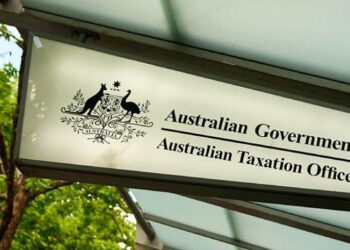The Financial Services Council (FSC) released new data that shows the full impact of the proposed superannuation tax on different age cohorts of Australians under four different scenarios, including lowering the cap to $2 million and if both thresholds were subject to indexation.
The analysis is based on data from the ATO Taxation statistics 2019–20 of superannuation contributions by individuals, total superannuation member accounts balance range, taxable income range and age range.
It also makes a number of assumptions, such as inflation at 2.5 per cent per year, investment return on superannuation balance of 7.5 per cent per year, effective tax on earnings at 7 per cent per year, as well as fees and expenses related to administration and a retirement age of 65 years.
The four scenarios modelled by the FSC include:
- $3 million threshold without indexation, as previously released (Labor policy).
- $3 million threshold with indexation (potential negotiated outcome).
- $2 million threshold with indexation (Greens policy).
- $2 million threshold without indexation (potential negotiated outcome).
The FSC said that the decision on whether to index the proposed tax will have a significant impact on younger Australians and is critical to the overall fairness of the measure.
It found that under the four scenarios modelled, with a $2 million threshold and no indexation, more than 1.8 million Australians currently in the workforce will be impacted by the legislation by the time they reach retirement.
Furthermore, under the Labor policy of a $3 million threshold and no indexation, more than 500,000 Australians currently in the workforce will be impacted by the time they reach retirement, while under the Greens policy of a $2 million threshold and indexation, more than 200,000 Australians currently in the workforce will be impacted by the time they reach retirement.
Alternatively, with a negotiated outcome of a $3 million threshold with indexation, 64,000 Australians currently in the workforce will be impacted by the time they reach retirement.
Blake Briggs, CEO of the FSC, said the government will set the tone for how it intends to govern in its second term by deciding whether to listen to broad consumer, industry and economists’ feedback on how the current design of its superannuation tax is unfair to future generations of Australians.
“The superannuation industry recognises the government has the capacity to force the new tax through the Parliament with the support of the Greens but encourages the two parties to take a more constructive and consultative approach,” Briggs said.
“The Financial Services Council encourages the government to consult on options that would not unfairly target future generations of Australian superannuation consumers and undermine confidence in our retirement system by introducing a new, contentious tax on unrealised capital gains.”
He added that the superannuation industry recognises there is merit to ensuring the superannuation system remains fair and fiscally sustainable.
“However, the government’s current approach risks undermining consumer confidence in Australia’s retirement system by changing the goalposts on current and future retirees who, until now, have played by the rules,” he said.
“The FSC is concerned that the absence of indexation is a deliberate and cynical design feature of the new tax, that targets younger Australians, in full knowledge that Australia’s deteriorating financial position means future governments will be too cash-strapped to introduce indexation at a later stage.”



Does this argument ignore the obvious fact that over the 20 or 30 years new strategies will be put in place to avoid all the doom and gloom being mentioned. Or do we assume no changes will take place over the next 20 or 30 years. I cannot even begin to think about the second option.